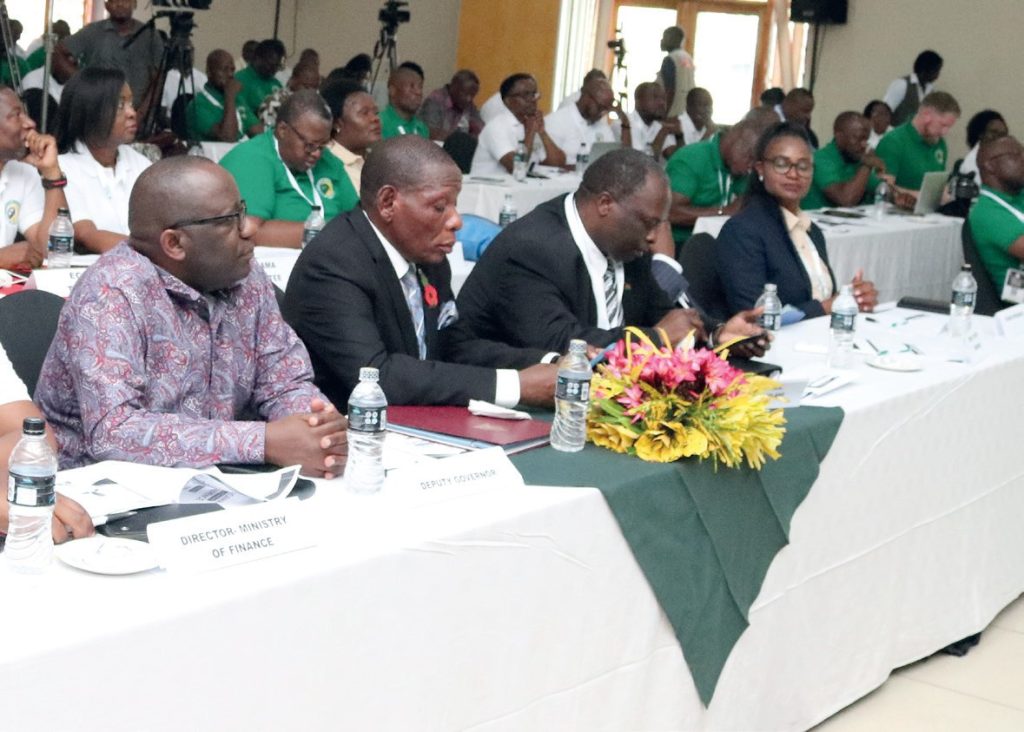Devaluation is not solution—minister
Minister of Finance, Economic Planning and Development Joseph Mwanamvekha says devaluation of the kwacha is not a solution to Malawi’s foreign exchange challenges, observing that the recent episodes of devaluation have not achieved anything.
Speaking at the 2025 Economics Association of Malawi 2025 Annual Economic Conference in Mangochi on Thursday, the minister said with the anticipated discussions with the International Monetary Fund (IMF) team, government has agreed to have a “cocktail” of policies to address foreign exchange challenges.

Said Mwanamvekha: “We need to have policies that can address foreign exchange shortages both on the supply and demand side as devaluation is not a panacea. Devaluation without supply will not address the problem.
“Areas that can be addressed are on money supply, which is currently at 70 percent, huge amounts of money chasing dollars on the black market and some policies will be unconventional where we want to deal with public expenditure in regards to forex availability.”
He said they are not saying devaluation cannot be done, “but maybe let it be done when we have enough supply”.
Mwanamvekha said government officials will this week be engaging the IMF team on a fresh economic programme.
Analysts say since the 44 percent kwacha devaluation in November 2023 under Extended Credit Facility (ECF), the official exchange rate remained broadly constant against the dollar.
The stability in official exchange rate contrasts with the dynamics observed in the informal market, where the rate has depreciated over the same period, with the informal market rate premium reportedly reaching around 150 percent in March 2025 before declining to above 100 percent the next month, according to the IMF.
The IMF further observed that recent episodes of exchange rate devaluation have coincided with large jumps in non-food inflation over the past two years, reflecting an upward pressure on prices of imported items.
In the previous ECF programme, the IMF said exchange rate unification was a short-term reform priority to avoid a high inflation, low growth trap and that it needed to be considered as part of a broader macro-economic stabilisation package.
IMF feared that an exchange rate re-alignment in the current context of macroeconomic instability and lack of policy credibility, especially fiscal, was likely to perpetuate the depreciation-inflation cycle feared by the authorities.
Speaking at the conference, Reserve Bank of Malawi Governor MacDonald Mafuta Mwale said stagnant export earnings against a significant appetite for imports, has rendered the accumulation of foreign exchange reserves impossible.
He said there is a need to rethink what to import, which can only be done if the economy produces enough to enable import substitution.
Mafuta-Mwale, who is also Ecama Board of Trustees chairperson, said: “The economy has been going through various domestic and international shocks in recent years, including pandemics, back-to-back climate shocks, rising debt and more recently, trade tariffs and aid withdrawal.
“These shocks have also contributed to persistent foreign exchange shortages and stubbornly high inflation.”
In his keynote presentation, African Economic Research Consortium executive director Professor Victor Murinde called for reshaping of the economy, observing that traditional models collapse easily under global shocks, leading to inflation, debt distress and unemployment.
“Reshaping the economy means diversifying production, strengthening domestic value chains, and reducing dependence on volatile external factors,” he said.
The IMF’s November 3 to 7 mission comes after the $175 million (about K306 billion) ECF automatically terminated on May 14 2025 without completing a review, 18 months after approval.
Malawi secured the programme in November 2023.
This year’s Ecama conference was being under the theme ‘Beyond the crises: Reshaping the economy’.





